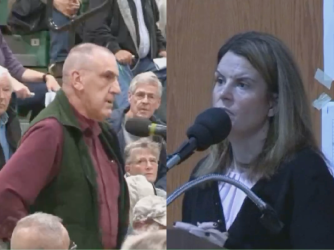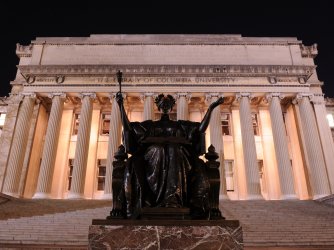Table of Contents
Seventh Circuit Rules in Favor of Adjunct Professor Terminated for Speech

Former Moraine Valley Community College (MVCC) adjunct professor Robin Meade will get another chance to argue in court that the Illinois public college unlawfully retaliated against her for constitutionally protected speech, and that it deprived her of a property interest in her employment without granting her due process. Yesterday, the U.S. Court of Appeals for the Seventh Circuit overturned a lower court’s dismissal (PDF) of Meade’s lawsuit against MVCC in a decision that will be helpful for adjunct professors throughout the Seventh Circuit’s jurisdiction, which includes the states of Illinois, Indiana, and Wisconsin.
Chief Judge Diane P. Wood summarized the events leading to the lawsuit:
In August 2013, Robin Meade wrote a letter to the League for Innovation in the Community College about her employer, Moraine Valley Community College. ... Meade, an adjunct faculty member at Moraine Valley, leveled multiple charges at the college regarding its poor treatment of adjuncts. These practices, she charged, harmed Moraine Valley’s students. … Two days later, Moraine Valley fired Meade. Its explanation for doing so was unusually frank: it sent her a written notice explicitly citing Meade’s letter as the reason for its action.
Meade filed suit in federal court, arguing that the college violated her First Amendment rights by terminating her employment because of the letter. She also claimed that the nature of her contract with MVCC meant that she had a property interest in her employment, of which the college deprived her without an opportunity to contest the decision, in violation of her due process rights.
The Seventh Circuit disagreed with two bases on which the lower court dismissed Meade’s suit. First, the lower court had held that the letter addressed Meade’s personal concerns, not a matter of public concern, and that therefore the university’s decision to terminate her based on the letter was allowable under the test set forth by the Supreme Court in Pickering v. Board of Education (1968). As Judge Wood explained, though, the fact that Meade was affected by MVCC’s attitude towards adjuncts does not negate the fact that adjunct professors not just at MVCC but across the country are struggling with the problems Meade articulated in her letter. Accordingly, the appellate court determined that Meade’s letter may indeed form the basis for a First Amendment retaliation claim.
As a side note: Torch readers might remember that free speech cases involving professors are usually fought in the shadow of the Supreme Court’s problematic ruling in Garcetti v. Ceballos (2006), holding that government employees may be disciplined for speech “pursuant to” their “official duties.” Justice Anthony Kennedy’s statement in Garcetti that the holding does not necessarily apply to “speech related to scholarship or teaching” often provides the basis for our legal argument in favor of professors’ rights in those cases. In this case, however, the college “concede[d] that Meade had no employer-imposed duty to write her letter”—effectively eliminating a common hurdle for First Amendment suits by professors.
Second, the Seventh Circuit disagreed with the lower court’s conclusion that Meade did not have a property interest in her employment. The Seventh Circuit opinion reviews Meade’s employment agreement with MVCC, which sets out: “first, a listing of classes, with dates, course numbers, and Meade’s pay for the semester; and second, four sentences of legalistic language that set forth a series of caveats.” Although employment in Illinois is generally “at will,” this agreement “provide[d] Meade with an expectation of employment … during the specified time, and thus a cognizable property interest in working at the college during that period.” Accordingly, the college should have provided Meade an opportunity to speak in her defense before terminating her employment.
Following these two conclusions, the Seventh Circuit remanded the case back to the lower court for further proceedings. FIRE is glad to see the appellate court take this step to protect the free speech and due process rights of adjunct faculty members in the Seventh Circuit’s jurisdiction. As Inside Higher Ed’s Colleen Flaherty notes in her coverage of the case, “Adjuncts historically have struggled to find legal support when they suddenly lose their teaching assignments, and the appeals court decision represents a strong statement that they have First Amendment rights and that their grievances are significant matters of public policy.”
FIRE will watch for further updates on the case’s outcome.
Recent Articles
FIRE’s award-winning Newsdesk covers the free speech news you need to stay informed.


Massachusetts town stifles ‘disparaging’ comments at town hall meeting concerning phony overtime billing

Campus encampment bans rarely violate the First Amendment. Here’s why.
